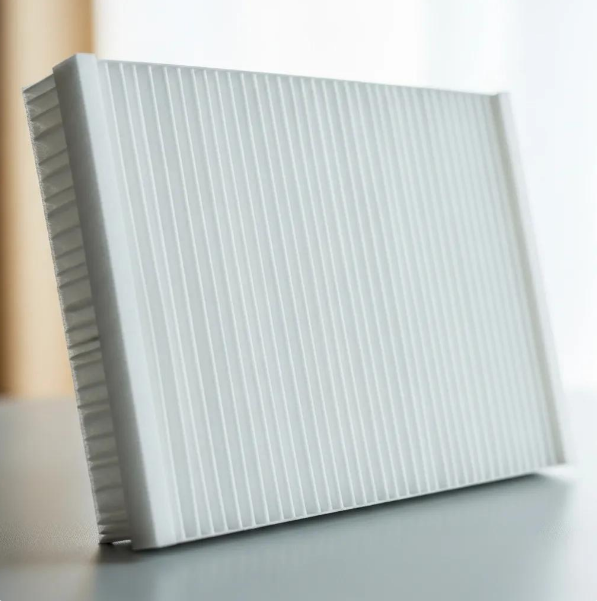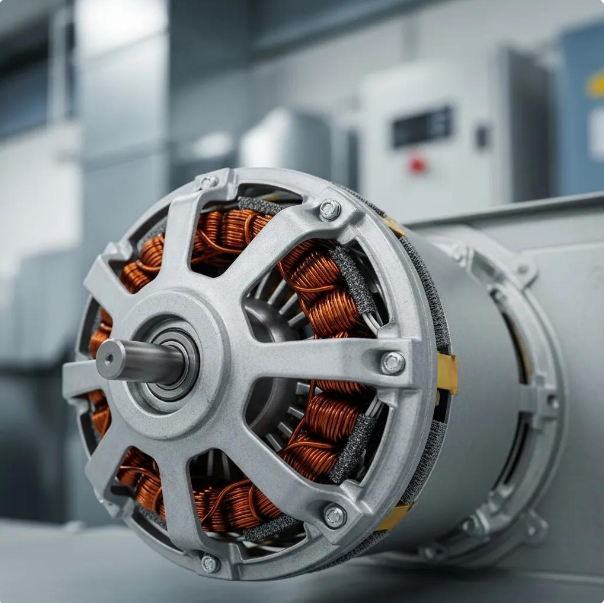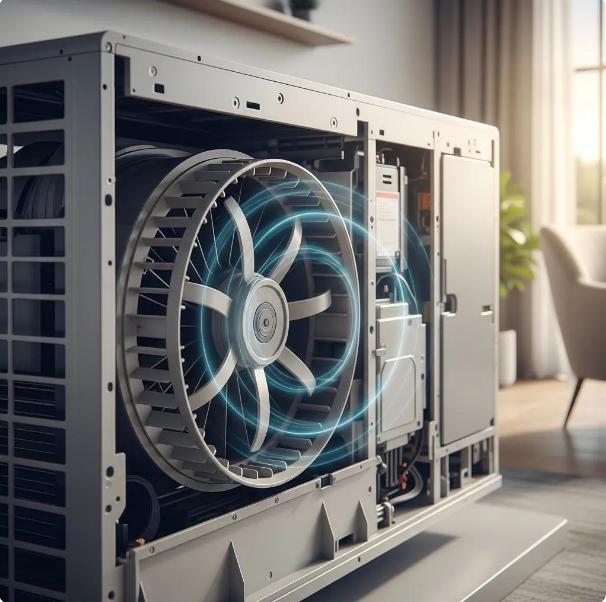Best Fujitsu Air Conditioner Model to Install for Australian Climate


Government Rebates Now Available on Energy-Efficient Air Conditioners when Replacing your Gas Heater.
Fujitsu is a prominent global corporation with a significant presence in the air conditioning industry. The company's background is rooted in innovative technology solutions, which has contributed to its expertise in developing efficient and reliable air conditioning systems. In the air conditioning sector, Fujitsu has established itself as a leader in technological advancements and energy efficiency.
The term "best Fujitsu air conditioning models" refers to units that excel in performance, energy efficiency, and suitability for specific environments, particularly the Australian climate. These models are designed to provide optimal cooling and heating while considering factors such as energy consumption, noise levels, and durability.
Choosing the right Fujitsu air conditioning model is important as it ensures optimal comfort, energy savings, and longevity of the unit. The Australian climate, characterised by its diversity and extremes, demands air conditioning systems that can cope with high temperatures, humidity, and occasional cold spells. Therefore, selecting a model that is specifically suited to these conditions is essential for customer satisfaction and system efficiency.
Fujitsu produces various types of air conditioners, including split systems and reverse cycle models. Each type is designed to meet different needs and preferences, catering to various room sizes and climate control requirements.
When selecting the best Fujitsu aircon model to install, several factors should be considered:
1. Room size and layout
2. Climate conditions in your specific location
3. Energy efficiency ratings
4. Cooling and heating capacity
5. Noise levels
6. Additional features (e.g., air purification, Wi-Fi control)
7. Budget considerations
It is highly recommended to consult a professional air conditioning installer to avoid mistakes and ensure the most suitable unit is chosen for your unique requirements. Professional installers have the expertise to assess your space, understand your needs, and recommend the most appropriate Fujitsu model for your situation.
What is Fujitsu Brand?
Fujitsu is a Japanese multinational information technology equipment and services company founded in 1935. It has since become a global leader in various technological fields, including air conditioning systems, known under the brand Fujitsu General.
There are several compelling reasons to consider Fujitsu for your air conditioning needs:
1. Technology: Fujitsu invests heavily in research and development, resulting in cutting-edge air conditioning technologies that improve comfort and efficiency. Their inverter technology, for example, allows for precise temperature control and energy savings.
2. Efficiency: Fujitsu air conditioners are known for their high energy efficiency ratings, helping to reduce electricity costs and environmental impact. Many of their models have high star ratings in Australia's energy rating system.
3. Performance: Fujitsu units are designed to deliver powerful cooling and heating capabilities, even in extreme weather conditions typical of the Australian climate. Their systems can maintain comfortable temperatures in both scorching summers and chilly winters.
4. Features: Fujitsu air conditioners often include advanced features such as human sensor technology, multi-stage filtration systems, and user-friendly controls. Many models also offer Wi-Fi connectivity for smart home integration.
5. Durability: Fujitsu products are built to last, with high-quality components and robust construction ensuring long-term reliability. This durability is particularly important in Australia's harsh climate, where air conditioners often need to work harder and longer.
Best Fujitsu Air Conditioner Type to Install
Air conditioner types refer to the various configurations and functionalities of cooling systems. The main types offered by Fujitsu include:
1. Split Systems: Consisting of an indoor and outdoor unit
2. Multi-Split Systems: One outdoor unit connected to multiple indoor units
3. Ducted Systems: Central unit with ductwork for whole-home cooling
4. Wall-Mounted Units: A type of split system with the indoor unit on the wall
5. Floor-Standing Units: Split system with the indoor unit on the floor
6. Ceiling-Mounted Units: Including cassette and under-ceiling models
Criteria for choosing the Best Fujitsu air conditioner type to install:
1. Space size and layout: Consider the dimensions and configuration of your room or home
2. Installation flexibility: Assess structural limitations and available space for units
3. Energy efficiency requirements: Look for high star ratings for lower running costs
4. Desired features: Determine which advanced features are important to you
5. Budget constraints: Balance upfront costs with long-term savings
6. Aesthetic preferences: Consider how the unit will look in your space
7. Zoning needs: Determine if you need to cool different areas independently
8. Noise considerations: Choose quieter options for bedrooms or study areas
9. Heating requirements: Consider reverse cycle models for year-round comfort
10. Future plans: Think about potential home extensions or renovations
What is the best Fujitsu split air conditioner model to Install?
Split air conditioners consist of an indoor unit and an outdoor unit connected by refrigerant lines. They are ideal for cooling individual rooms or open-plan areas efficiently.
Some of the best Fujitsu split air conditioner models, based on customer satisfaction and technological advancements, include:
1. Fujitsu ASTG09KMCA: Known for its energy efficiency and powerful performance
2. Fujitsu ASTG18KMCA: Offers excellent cooling capacity and advanced filtration
3. Fujitsu ASTG24KMCA: Features a high capacity suitable for larger spaces
These models excel due to their inverter technology, which allows for precise temperature control and energy savings. They also incorporate advanced filtration systems, such as the Apple-Catechin Filter and Ion Deodorisation Filter, and user-friendly features like the Human Sensor for automatic energy saving.
What is the best Fujitsu Reverse Cycle Air Conditioner model to Install?
Reverse cycle air conditioners can both cool and heat, making them versatile options for year-round climate control in Australia's varied climate.
Top Fujitsu reverse cycle air conditioner models include:
1. Fujitsu ASTG09KUCA: Offers powerful heating and cooling with high energy efficiency
2. Fujitsu ASTG18KUCA: Features rapid heating and cooling capabilities
3. Fujitsu ASTG30KMTA: Provides efficient climate control for larger spaces
These models stand out due to their ability to provide efficient heating and cooling, even in extreme temperatures. They utilise advanced compressor technology and intelligent sensors to optimise performance and energy usage, making them ideal for Australia's diverse climate conditions.
Best Fujitsu Air Conditioner Series to Install
Air conditioner series refer to specific product lines within Fujitsu's range, each designed with particular features, performance levels, and target markets in mind. These series represent collections of air conditioning units that share common characteristics, technologies, and design elements.
Criteria for choosing the Best Fujitsu air conditioner Series to install:
- Cooling and heating capacity: Different series offer varying levels of cooling and heating power, suitable for different room sizes and climate conditions.
- Energy efficiency: Look for series with high energy efficiency ratings to ensure lower running costs and reduced environmental impact.
- Noise levels: Some series are designed for quieter operation, which is important for bedrooms or study areas.
- Advanced features: Higher-end series often include advanced features like Wi-Fi control, air purification systems, and intelligent sensors.
- Design aesthetics: Certain series focus on sleek, modern designs that can complement various interior styles.
- Budget considerations: Series range from budget-friendly options to premium, high-end lines.
- Specific climate needs: Some series are optimised for particular climate conditions, such as high humidity or extreme temperatures.
- Installation flexibility: Certain series may offer more flexible installation options to suit different room layouts.
- Brand reputation: Consider the overall reputation of Fujitsu for reliability and after-sales support.
- Warranty and support: Look into the warranty terms and available support for each series.
List of Fujitsu Air Conditioner Series:
- Lifestyle Series: Balanced performance and features for everyday use
- Designer Series: Stylish units with advanced features
- Classic Series: Reliable and cost-effective range
- e3 Series: Focus on energy efficiency and environmental performance
- Nocria Series: Advanced air purification and dehumidification
- Inverter Series: Emphasis on energy-efficient operation
- Multi System Series: For cooling multiple rooms with one outdoor unit
- Ducted Series: Whole-home cooling solutions
- Cassette Series: Ceiling-mounted units for commercial spaces
- Floor/Ceiling Series: Versatile installation options
Fujitsu Lifestyle Air Conditioner
The Fujitsu Lifestyle series is designed to offer a perfect balance of performance, energy efficiency, and user-friendly features for modern Australian homes. This series includes advanced technologies such as the Human Sensor for automatic energy saving and the Apple-Catechin Filter for improved air quality. The best models in the Lifestyle series include the ASTG09KMCA and ASTG12KMCA. These units provide excellent cooling and heating capabilities for small to medium-sized rooms, making them ideal for bedrooms and living areas in Australian homes. The Lifestyle series is known for its quiet operation and sleek design, blending seamlessly with various interior styles.
Fujitsu Designer Air Conditioner
The Fujitsu Designer series is characterised by its stylish appearance and advanced performance features, catering to homeowners who prioritise both aesthetics and functionality. This series includes models with a slim profile and elegant finish, designed to complement modern interiors. The standout models in the Designer series are the ASTG09KUCA and ASTG12KUCA. These units offer powerful cooling and heating capabilities for medium-sized rooms, combined with energy-efficient operation. The Designer series is particularly notable for its whisper-quiet operation and advanced air filtration systems, ensuring both comfort and air quality in Australian homes.
Fujitsu Classic Air Conditioner
The Fujitsu Classic series represents the brand's reliable and cost-effective range of air conditioners, offering essential cooling and heating features without compromising on quality. This series is designed for those seeking a straightforward, efficient air conditioning solution. The top models in the Classic series include the ASTG30KMTA and ASTG34KMTA. These units provide robust cooling and heating performance for larger spaces, making them suitable for open-plan living areas or small offices. The Classic series is known for its durable construction and easy-to-use controls, ensuring long-lasting comfort in Australian homes and small businesses.
How to Choose the Right Air Conditioners Type to Install?
When choosing the right air conditioner type to install, consider the following factors:
1. Room size and layout: Ensure the unit's capacity matches the space
2. Climate conditions: Choose a type suited to your local weather patterns
3. Energy efficiency: Look for high star ratings to reduce running costs
4. Installation requirements: Consider the feasibility and cost of installation
5. Noise levels: Opt for quieter types in bedrooms and living areas
6. Additional features: Decide which extra functions are important to you
7. Budget: Balance upfront costs with long-term energy savings
8. Cooling and heating needs: Consider reverse cycle types for year-round use
9. Air quality features: Look for types with effective filtration systems
10. Smart capabilities: Consider Wi-Fi enabled types for convenient control
11. Zoning requirements: Determine if you need to cool different areas independently
12. Aesthetic considerations: Choose a type that complements your home's design
What are the air conditioners types?
Air conditioners come in various types, each designed to suit different spaces and cooling needs. Split system air conditioners consist of an indoor and outdoor unit, ideal for cooling individual rooms efficiently. Multi-split systems allow multiple indoor units to be connected to a single outdoor unit, perfect for cooling several rooms independently. Ducted air conditioning systems use a central unit to cool air, which is then distributed throughout the home via ductwork, offering whole-house cooling with a discreet appearance. Window air conditioners are compact units installed in a window or through a wall, suitable for small spaces. Portable air conditioners are standalone units that can be moved between rooms, offering flexibility for renters or temporary cooling needs. Ceiling cassette air conditioners are recessed into the ceiling, providing efficient cooling with a sleek appearance, often used in commercial spaces or homes with suspended ceilings. Each type has its advantages and is suited to different scenarios, depending on factors such as space size, installation requirements, and cooling needs.
What are the alternatives of Fujitsu air conditioner Brand?
Air conditioner brands in Australia offer a wide range of alternatives to Fujitsu. Some of the leading brands include Daikin, Mitsubishi Electric, Panasonic, LG, Samsung, Kelvinator, Carrier, and Toshiba. Each of these brands has its own strengths and specialities, catering to different needs and preferences in the Australian market. For example, Daikin is known for its energy-efficient models and innovative features, while Mitsubishi Electric offers a wide range of products suitable for various applications. Panasonic is recognised for its reliable performance and advanced technologies, and LG is known for its smart home integration capabilities. When considering alternatives, it's important to compare factors such as energy efficiency ratings, cooling and heating capacities, noise levels, and additional features that may be important for your specific needs.
How to Find Fujitsu Air conditioner installer in Melbourne
To find a reputable Fujitsu air conditioner installer in Melbourne, follow these steps:
Step 1: Check for proper licensing and certifications.
Step 2: Look for Fujitsu accredited installers.
Step 3: Read customer reviews and testimonials.
Step 4: Ask for detailed quotes and comparisons.
Step 5: Verify insurance coverage.
Step 6: Enquire about after-installation support and warranty services.
Step 7: Check the installer's experience with Fujitsu products.
Step 8: Ask about their knowledge of local climate conditions and regulations.
Step 9: Verify their familiarity with Fujitsu's latest technologies and features.
Step 10: Inquire about their approach to energy efficiency and sustainability.
Oz Air Group in Melbourne has extensive experience in installing Fujitsu air conditioners. With our air conditioning installation expertise and commitment to quality service, we can ensure your Fujitsu air conditioning system is installed correctly and efficiently. For more information about our Fujitsu installation services, visit www.ozairgroup.com.au or contact us directly at 1300 069 247 to discuss your air conditioning needs and receive our expert air conditioning installation advice tailored to your specific requirements. Our team of professionals can help you select the ideal Fujitsu model for your home and ensure a smooth, hassle-free installation process.
Areas we service
Oz Air covers Melbourne and its northern suburbs.

Get in touch






.png)









.png)